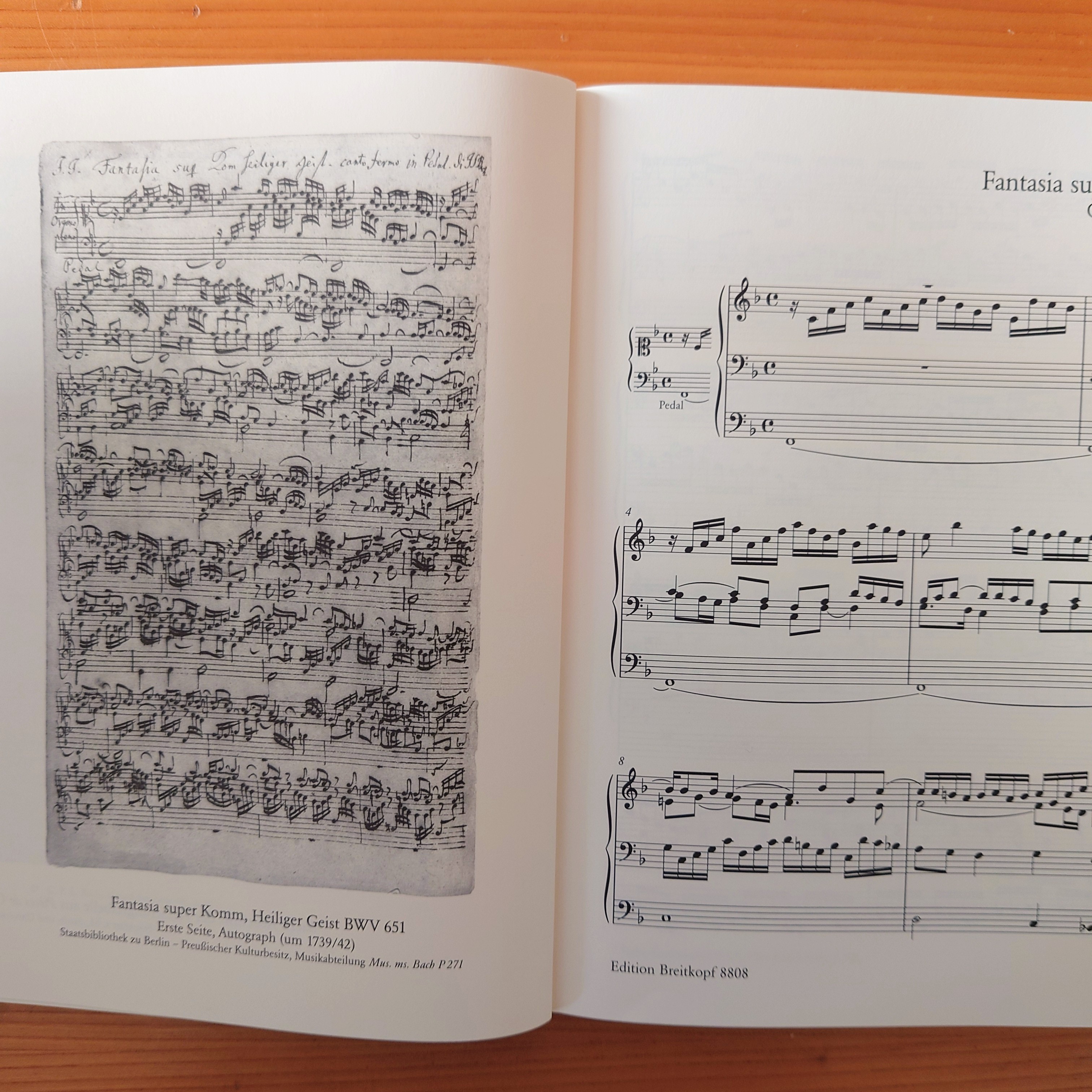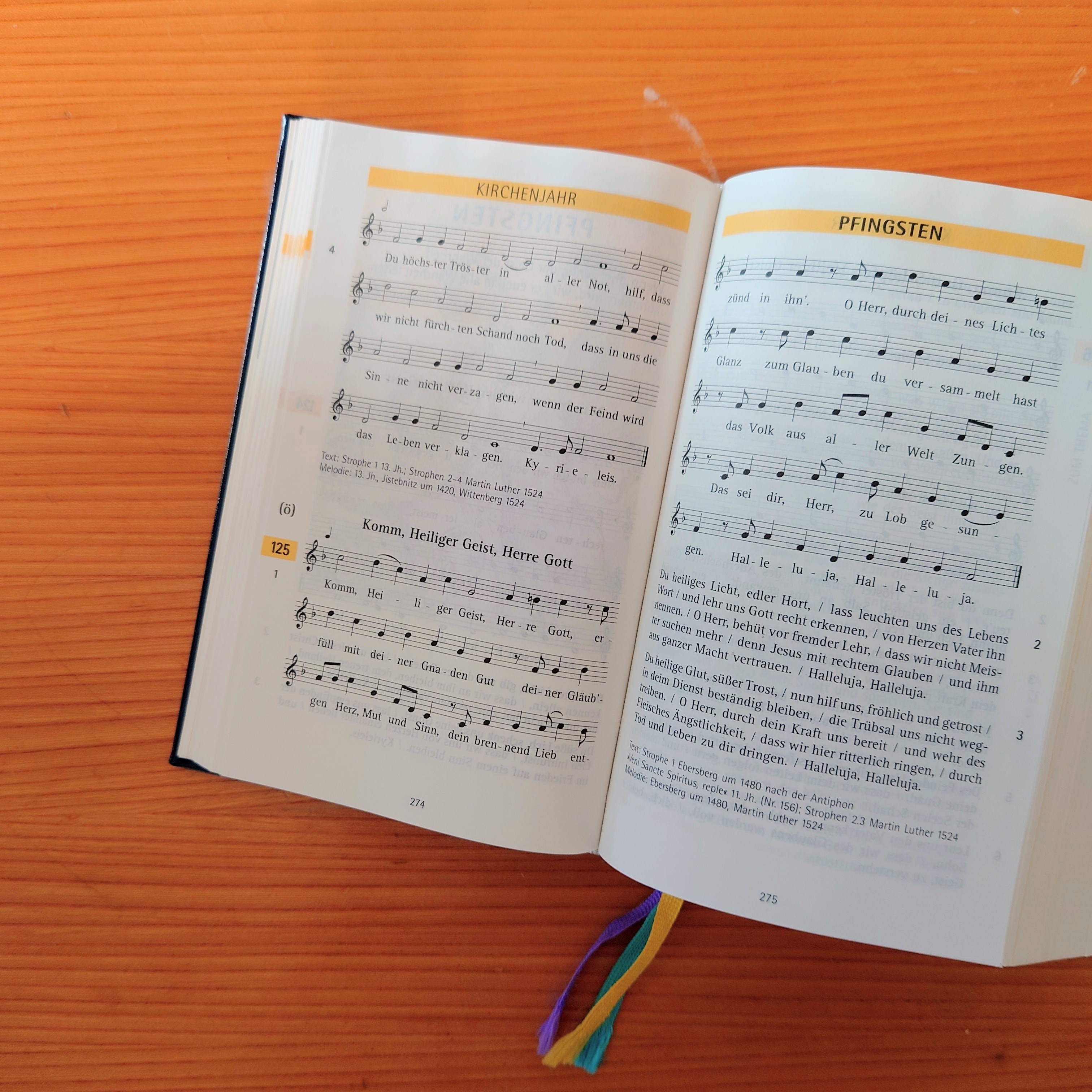Two years ago, I wrote a blog post with the title “The organ shall sound” and I talked about my most loved organ work genre – Chorale Prelude, organ piece that written based on a hymn. In the post, I said:
I experienced “be raised” by practicing organ.
I am having this kind of feeling recently by learning J.S. Bach’s BWV 651 Fantasia super Komm, Heiliger Geist.


Song text:
Come, Holy Spirit, Lord God,
fill with the goodness of your grace
the heart, spirit and mind of your believers,
kindle in them your ardent love !
O Lord, through the splendour of your light
you have gathered in faith
people from all the tongues of the world;
so that in your praise Lord, may there be sung
Halleluja! Halleluja!
(Translation source: https://www.bach-cantatas.com/Texts/Chorale103-Eng3.htm)
This piece to me is like a jubilation without end. The choral melody is at the lowest part, the fundament of the piece play on the pedal. The hands part is celebrating Holy Spirit. At some places we can also hear “Seufzermotiv” (musical sighing expression) in the middle of the celebration. It reminds me of the Bible verse in Rome 8:26.
But the Holy Spirit prays for us with groanings that cannot be expressed in words.
When the choral melody comes to the text: “people from all the tongues of the world sing praise to the Lord, may there be sung” and before the “Halleluja!” melody continues in pedal is a Fugue. According to Merriam Webster, the definition of Fugue is:
A musical composition in which one or two themes are repeated or imitated by successively entering voices and contrapuntally developed in a continuous interweaving of the voice parts.
The song text says: tongues sing praise. The music from there on begins with one voice, another voice join in, and one more voice join in, in this manner for a whole page. Finally, pedal comes at the end with “Halleluja” choral melody! It announced the very sure great triumph, it cannot be otherwise.
For the best listening experience for this piece, please go to big cathedral and listen to it live. If you’re attending an organ concert or a worship service during Pentecost, the chance of listening to this piece is high in Germany. Hence, instead of this fantastic choral fantasy, tonight let us listen to an organ work transcribed for piano played by György Kurtág and Márta Kurtág. The beautiful childlike and very difficult (at least for me) organ trio sonata in E Flat originally composed by J.S. Bach for his son Wilhelm Friedemann Bach. I wish you a peaceful night.
Note:
– J.S. Bach Trio Sonata no. 1 in E-flat major BWV 525 played by Wolfgang Zerer. I attended his master class in year 2019.
https://www.youtube.com/watch?v=3YGPe0OrNzo
– Background of J.S. Bach’s trio sonata introduced by Wolfgang Zerer, I like what he said at the end of the video the most.
https://www.youtube.com/watch?v=VoVtJSAWBqU
– The organ shall sound! (Year 2020)
https://thejourney-writing.com/2020/07/the-organ-shall-sound.html